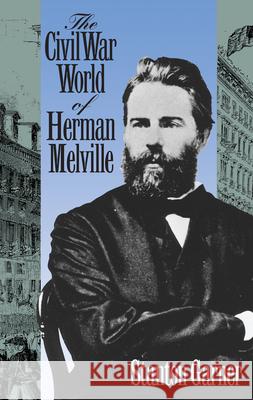Civil War World of Herman Melville » książka
Civil War World of Herman Melville
ISBN-13: 9780700606023 / Angielski / Twarda / 1993 / 560 str.
Contrary to popular belief, Stanton Garner contends, Herman Melville was not intellectually and emotionally detached from the war. In actuality, Melville brooded over the war's enormous brutality and destructive power. At the same time, his passion for writing, which had suffered greatly in the wake of his grand failures of the 1850s, revived. With renewed purpose, Melville saw an opportunity to establish himself as the prophet--poet of a rededicated America. The vehicle for this ambitious, and ultimately unfulfilled, enterprise was to be Battle-Pieces, an epically conceived book of poems that chronicles the war from John Brown's raid on Harper's Ferry through Lincoln's assassination.
Drawing upon previously unknown or neglected archival sources, Garner places Melville's experience within the larger contexts of his extended family, social circles, political beliefs, travels, and reading. He establishes Melville's position in the rift among major Northern writers in which Emerson, Longfellow, Lowell, and Whittier were on one side and Melville, Hawthorne, and--to some extent--Whitman were on the other. By delving into the complexities and apparent contradictions of Melville's personal life, Garner reveals why a man who was diametrically opposed to slavery refused to side with the abolitionists and maintained the anti-administration attitude predominant in his Democratic family while supporting the Union war effort.










